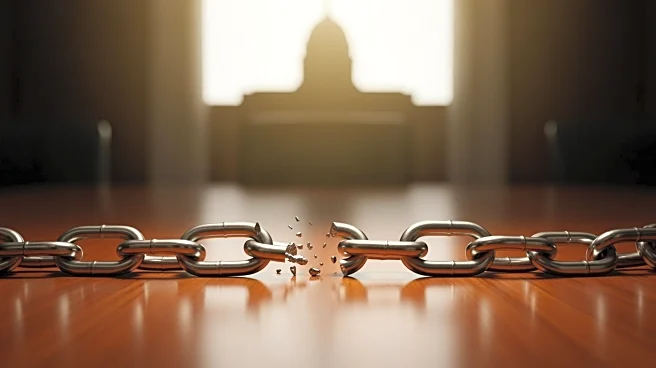What's Happening?
House Minority Leader Hakeem Jeffries, D-New York, is urging Republican lawmakers to collaborate with Democrats to end the ongoing government shutdown, which has now become the longest in U.S. history
at 36 days. Jeffries emphasized the need for a bipartisan approach to address the shutdown and related issues such as high healthcare costs. His comments come in the wake of significant Democratic victories in recent elections across New Jersey, New York, and Virginia, which he believes should prompt Republicans to reconsider their stance. Jeffries, along with Senate Minority Leader Chuck Schumer, has been vocal about the need for a resolution, warning that continued inaction could have negative repercussions for Republicans.
Why It's Important?
The prolonged government shutdown is having widespread effects, including missed paychecks for federal employees, travel disruptions, and delays in food assistance programs like SNAP. The political stalemate is also impacting public perception, as recent election results suggest growing support for Democratic positions. The shutdown's resolution is crucial not only for the immediate relief of affected individuals but also for the broader political landscape, as it could influence future legislative negotiations and electoral outcomes. The pressure is mounting on Republicans to negotiate, especially as President Trump faces criticism for his handling of the situation.
What's Next?
As bipartisan discussions continue, there is potential for a compromise that could reopen the government. However, the path forward remains uncertain, with President Trump advocating for the elimination of the Senate filibuster to expedite legislative processes. This proposal has met resistance from both parties, highlighting the complexities of achieving a resolution. The ongoing negotiations will likely focus on healthcare subsidies and other contentious issues, with moderate lawmakers playing a key role in bridging the divide. The outcome of these discussions will be pivotal in determining the shutdown's duration and its impact on future political dynamics.











